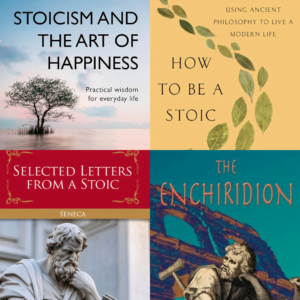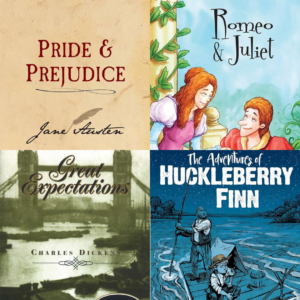
Table of Contents
Summary about the book “The Last Train to London”
“The Last Train to London” by Meg Waite Clayton is a meticulously researched and emotionally charged historical fiction novel that delves into the harrowing events of World War II. Set in pre-war Austria, the story follows Stephan Neuman, a Jewish teenager with dreams of becoming a playwright, and his best friend Žofie-Helene, a Christian girl whose mother is an anti-Nazi newspaper editor. Their lives take a devastating turn when the Nazis invade their country, posing a grave threat to their families and the entire Jewish community.
Amidst the darkness, a beacon of hope emerges in the form of Truus Wijsmuller, a courageous Dutchwoman who dedicates herself to rescuing Jewish children from the clutches of the Nazis. Truus, unable to have children of her own, feels a deep sense of responsibility to protect these innocent lives. As the Nazis tighten their grip on Europe, closing borders and increasing aggression, Truus faces ever-mounting risks and challenges in her mission to save as many children as possible.
“The Last Train to London” is divided into three parts, each capturing a distinct phase of the narrative. The initial section introduces the characters and their backgrounds, establishing a sense of normalcy before the storm. It is in the second part that the story gains momentum, as the individual threads of Stephan, Žofie-Helene, and Truus intertwine, leading to a convergence of their fates. Short chapters and the inclusion of newspaper articles add a sense of urgency and authenticity to the storytelling, propelling the reader forward.
Throughout the novel, Clayton’s attention to detail and extensive research shine through, making the book a compelling read for both history enthusiasts and fans of historical fiction. The train station scenes, where heartbroken parents bid farewell to their children, are particularly poignant and heart-wrenching. Clayton skillfully portrays the immense emotional toll of such moments, capturing the depths of love and sacrifice.
At the center of the narrative is Truus Wijsmuller, a remarkable and inspiring woman who defies the Nazis and risks her own life to save countless children. Her unwavering determination and compassion for others serve as a guiding light amidst the encroaching darkness. As the war draws nearer and the trains transport children to safety, the tension escalates, and Clayton’s writing becomes increasingly taut and gripping.
“The Last Train to London” ultimately pays tribute to the power of courage, resilience, and the human capacity for kindness in the face of unimaginable horrors. Truus Wijsmuller’s efforts lead to the successful rescue of approximately 10,000 children from Germany and Nazi-occupied territories, as they are transported via trains to Britain before the outbreak of war halts the operations. The novel serves as a reminder of the heroes who emerged during history’s darkest times and the invaluable lessons they impart.
In conclusion, “The Last Train to London” is a captivating and inspiring novel that shines a light on a lesser-known aspect of World War II—the Kindertransport rescue operation. Meg Waite Clayton masterfully weaves together the stories of ordinary individuals who found extraordinary courage in the face of evil. Through its powerful storytelling, the book resonates with readers, reminding us of the indomitable spirit of humanity and the enduring hope that can arise from even the darkest of times.
Also Read: Time Management in 20 Minutes a Day: Summary, Lessons and Review
Lessons or Takeaways from the book “The Last Train to London”
- The Power of Compassion: Truus Wijsmuller’s unwavering compassion for others, particularly the Jewish children trapped under Nazi rule, serves as a powerful example of the impact one person’s empathy can have in the face of immense suffering.
- Courage in the Face of Fear: Truus Wijsmuller’s bravery and willingness to risk her own safety to save others demonstrates that courage is not the absence of fear but rather the ability to act despite it.
- Resilience in Adversity: The characters in the novel, particularly the children who endure separation from their families and the hardships of war, showcase the remarkable resilience of the human spirit in the face of unimaginable adversity.
- The Importance of Hope: “The Last Train to London” emphasizes the vital role hope plays in sustaining individuals and communities during times of despair. It illustrates how holding onto hope can inspire action and drive people to fight against oppression.
- The Impact of Small Acts: The book highlights the significance of seemingly small acts of kindness and assistance. Truus Wijsmuller’s efforts to smuggle children to safety, one child at a time, demonstrate that even individual actions can make a profound difference in the lives of others.
- Confronting Prejudice: The story explores the destructive nature of prejudice and discrimination. It underscores the importance of challenging and opposing such biases, as well as the potential consequences when they are left unchecked.
- The Strength of Human Connections: The bonds forged between the characters, particularly Stephan, Žofie-Helene, and Truus, exemplify the power of human connections. These relationships provide support, resilience, and the motivation to continue fighting for what is right.
- The High Cost of War: The novel vividly depicts the devastating impact of war, not only in terms of physical destruction but also the emotional toll it takes on individuals and families. It serves as a reminder of the profound consequences of conflict.
- Historical Lessons: “The Last Train to London” sheds light on an often-overlooked aspect of World War II history—the Kindertransport rescue operation. It highlights the importance of understanding historical events to prevent the repetition of past atrocities.
- Never Forgetting: The book serves as a poignant reminder of the atrocities committed during the Holocaust and the importance of remembering and honoring the victims. It encourages readers to reflect on the past and strive for a more inclusive and compassionate world in the present and future.
Quotes from the book “The Last Train to London”
- “Courage isn’t the absence of fear, but rather going forward in the face of it.”
- “It’s the problems you fail to anticipate that defeat you.”
- “But the impossible must be possible now; the impossible was required just to survive.”
- “Each child has a mother who loves her enough to give her away.”
- “There was no stopping this tide. Not unless people could be made to care.”
- “Sometimes it takes more courage to stay still than to run.”
- “In a world spinning out of control, even tiny acts of defiance mattered.”
- “We must remember, so that we can honor those who didn’t make it.”
- “Fear had a way of twisting things until we believed we had no choices left.”
- “Hope is a stubborn thing, often more stubborn than reason.”
Also Read: Normal People: Summary, facts, lessons and Review
About the Author “Meg Waite Clayton”
Meg Waite Clayton is an acclaimed American author known for her captivating works of historical fiction. With a talent for blending meticulous research with compelling storytelling, Clayton has garnered recognition for her ability to transport readers to different eras and bring lesser-known stories to life.
Clayton was born and raised in Washington, D.C., and her passion for literature and storytelling developed from a young age. She pursued her academic interests at the University of Michigan, where she earned a bachelor’s degree in history. After completing her undergraduate studies, she went on to obtain a law degree from the University of Virginia.
Despite a successful career as a lawyer, Clayton’s love for writing persisted, and she eventually embarked on a path as an author. Drawing inspiration from her background in history and her fascination with untold stories, she delves into extensive research to create immersive narratives that resonate with readers.
Clayton’s writing is characterized by rich character development, intricate plotlines, and a deep exploration of the human condition. She skillfully captures the nuances of different time periods, immersing readers in the settings and customs of the past. Through her vivid prose, she tackles weighty themes such as resilience, love, loss, and the power of hope.
Her novel “The Wednesday Sisters” catapulted Clayton to literary prominence. The book, centered around a group of women navigating their personal and creative journeys against the backdrop of the 1960s and 1970s, struck a chord with readers and received critical acclaim.
In “The Last Train to London,” Clayton showcases her talent for breathing life into forgotten stories. The novel, based on true events, sheds light on the Kindertransport rescue operation during World War II. Clayton’s meticulous research and heartfelt storytelling illuminate the heroism and sacrifices of those involved in saving Jewish children from the clutches of the Nazis.
Meg Waite Clayton continues to captivate readers with her poignant and thought-provoking works. Her dedication to historical accuracy, coupled with her ability to craft deeply human narratives, has solidified her place as a respected and beloved author in the realm of historical fiction.
Also Read: “The Love Hypothesis”: Review, facts and lessons about the book
Conclusion and Rating of the book “The Last Train to London”
In conclusion, “The Last Train to London” by Meg Waite Clayton is a remarkable and powerful work of historical fiction that delves into the harrowing events of the Kindertransport rescue during World War II. Clayton’s meticulous research and compelling storytelling bring to light the heroic efforts of Truus Wijsmuller and others involved in saving thousands of Jewish children from the clutches of the Nazis.
The book’s unique premise, rich character development, and poignant exploration of themes such as compassion, courage, and the resilience of the human spirit make it a truly captivating read. Clayton’s prose transports readers to the pre-war era, immersing them in the turmoil and desperation faced by those caught in the grip of Nazi occupation.
The narrative unfolds at a steady pace, with short chapters and the inclusion of newspaper articles adding to the overall sense of urgency and tension. Clayton’s ability to evoke empathy and emotional connection through her characters is commendable, and the scenes at the train station, where parents bid farewell to their children, are particularly heart-wrenching.
“The Last Train to London” is a testament to the power of historical fiction in shedding light on lesser-known events and reminding us of the importance of remembering and learning from the past. It serves as a poignant reminder of the atrocities committed during the Holocaust and the resilience of those who fought against it. Based on its compelling storytelling, meticulous research, and ability to evoke a wide range of emotions, “The Last Train to London” deserves a high rating. I would give the book a rating of 4.5 out of 5 stars.
Also Read: “To Kill a Mockingbird”: Review, facts and lessons about the book



















+ There are no comments
Add yours